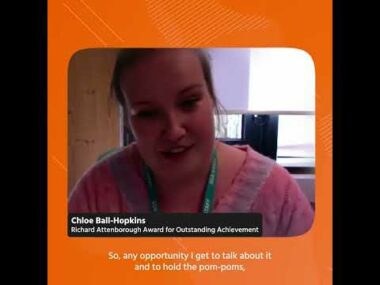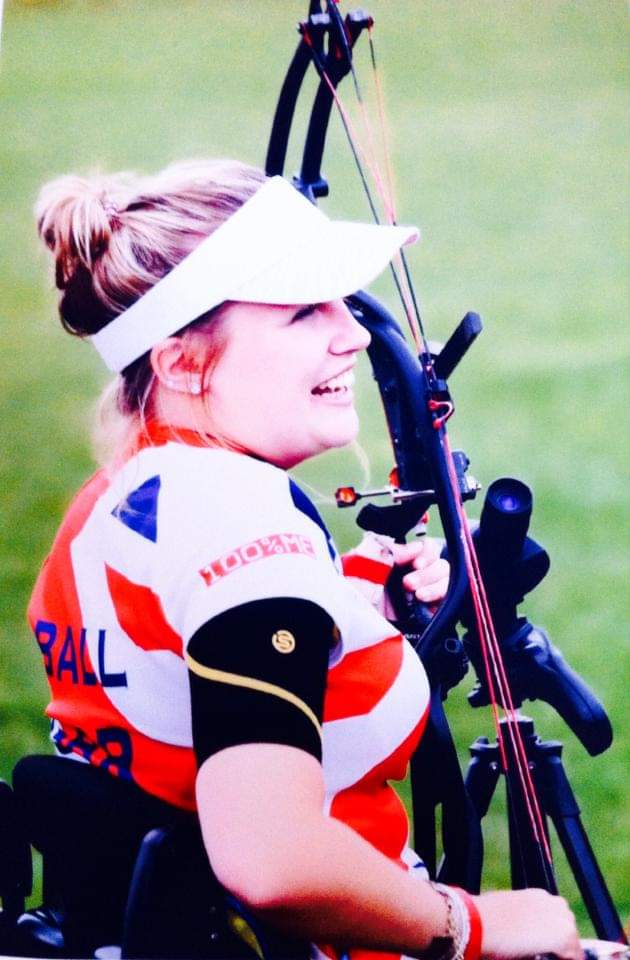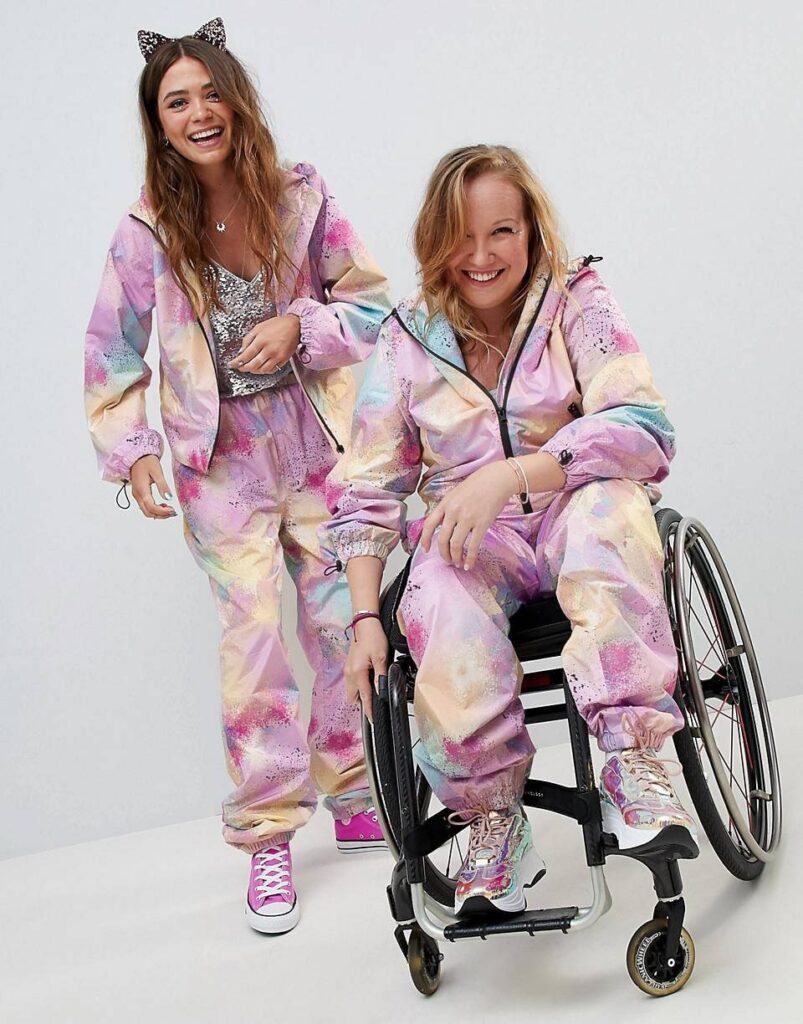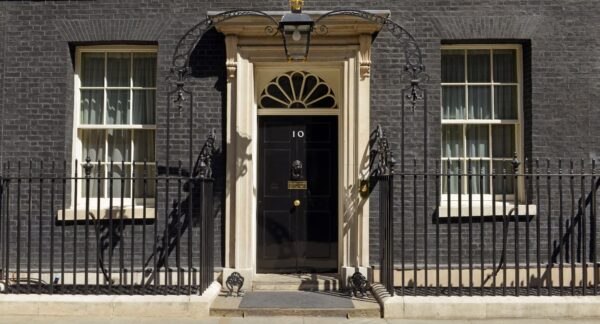Gabby Logan presents Chloe Ball-Hopkins with the Richard Attenborough Award for Outstanding Achievement, as part of our President’s Awards, in recognition of her role as a passionate spokesperson. Here she shares some of her highs, lows, and proudest memories.
"My hope for the future is a society that doesn’t disable me anymore"


For most of my life, doctors and consultants have been unable to tell me what is going to happen to me and my body. I live with nemaline myopathy. My condition is rare, so GPs generally don’t understand what it is, so it’s left to me to explain the effects and often point them in the direction of Muscular Dystrophy UK’s (MDUK) website, so they can look up my condition and find out more.
It’s been difficult over the years. At the age of 13, I had several studies done at Great Ormond Street including an intrusive procedure which involved sticking needles into my eyes to check on my muscle responses. I wanted them to have the opportunity to learn about my condition, because it might help others, at the same time I didn’t want to feel like I was just a science experiment. I wanted to be a teen like my friends.
On the train home I realised, if GPs need me to explain it to them, and Great Ormond Street can’t tell me how the condition will deteriorate, then no one can. At that moment, I said to myself “OK, well I just need to make the best of what I have and go with it.”
Since then, I haven’t let my condition get in the way of my life.
There are tough times, but I have set myself goals and achieved many things.
I was a keen sportswoman, from wheelchair tennis and basketball to athletics and archery. I even had the opportunity to represent Great Britain in Para Archery, breaking world records and winning medals in 2014 and 2015.

Making fashion accessible
I was the first wheelchair user to model for an online fashion brand. All while wearing an inclusive, festival-friendly waterproof jumpsuit that I had pitched to, and designed with, ASOS.
This all came about because I had been to a festival where no surprise, it began to rain. I had to wrap up in plastic sheets from the car and hide under an umbrella to stay dry. I turned to the person sitting in their wheelchair next to me on the viewing platform, who was dressed much the same, and we laughed at each other.

On the way home all I could think about was other ways I could keep dry at a festival but still look fashionable like everyone else. I decided I needed to come up with something myself.
When ASOS launched my design, it was an exciting time. I was developing my own accessible fashion label. I presented an NME top 20 podcast. I even delivered a TED talk on my jumpsuit story.
The impact of COVID-19
COVID-19 put a stop to everything in my life. I received a letter, well numerous letters, from several departments in the NHS labelling me as clinically extremely vulnerable.
I was only 23 years of age, and someone actually called me out of the blue from the NHS and talked about end of life.
Twelve weeks of shielding turned into over 20, then again for a further 21 weeks, as my condition required me to remain shielding for much longer than most.
Accessing essential healthcare became very difficult and hospital admissions became almost impossible. MDUK did everything they could to ensure the community had the best support.
They were a lifeline. Their helpline was there if we had questions about how COVID-19 affected our condition. Their social media kept us updated on changes to shielding. Virtual events kept the community connected.
At a time when we could have felt so disconnected from the world and everyone in it, we took it as an opportunity to continue to make the most of our lives. When you live with a muscle-wasting condition with no cure you know you can’t waste a single second.
Coming out of shielding wasn’t easy
As social distancing became less common, people couldn’t understand why I was vulnerable. When I started going outside again, people wouldn’t give me space, they’d walk into my chair.
This was an issue for a lot of people living with muscular dystrophy. What were we supposed to do? How were we meant to explain we were vulnerable? I even said to my mum, “should we walk around with big beacons on our heads?”
Finding a solution
Then I realised what I could do about it. I could wear a lanyard or a badge that tells people about my condition and to keep their distance. A bit like the sunflower lanyards that tell people about hidden disabilities.
MDUK put me in touch with another supporter. Together, we designed badges, lanyards and wheelchair signs for the community to wear.
My next big challenge – getting married and walking down the aisle
I use a manual wheelchair, but I can still walk short distances. There will come a day when I won’t be able to and when that will be, nobody knows. But I am adamant I am going to walk down the aisle at my wedding this year.
I’m doing it for my four-year-old self because back when my physio told me to find a reason to keep walking, I said “it’s so I can walk down the aisle, because that’s what all the Disney princesses get to do in the end, when they married their prince.”
It’s an honour and a privilege to receive this award
I have lots of great memories working with MDUK, having been involved with the charity since I was aged eight or nine. Speaking publicly at corporate events like MDUK’s Microscope Ball and the Spirit of Christmas Carol Service were definite highlights, and doing a skydive was also a huge tick off my bucket list. But what I enjoy most is having the opportunity to tell people about what it’s like to live with the condition and raising awareness about muscular dystrophies.
I hope we can build a more inclusive and equal world for people with conditions like mine, and any form of health condition or disability. As I said in my TEDxBristol talk in 2019, people’s perceptions need to change in order to eliminate limitations. My hope for the future is a society that doesn’t disable me anymore!
The President’s Awards judging panel say “Chloe’s determination and innovation in the face of potential barriers is incredible. She’s broken barriers for people living with muscle-wasting conditions, helped raised money for support and research, and has improved the lives of so many people both within and outside of the muscle-wasting community.”
Our annual President’s Awards celebrate the fantastic contributions of our community members. Find out more about the awards and the winners here.


